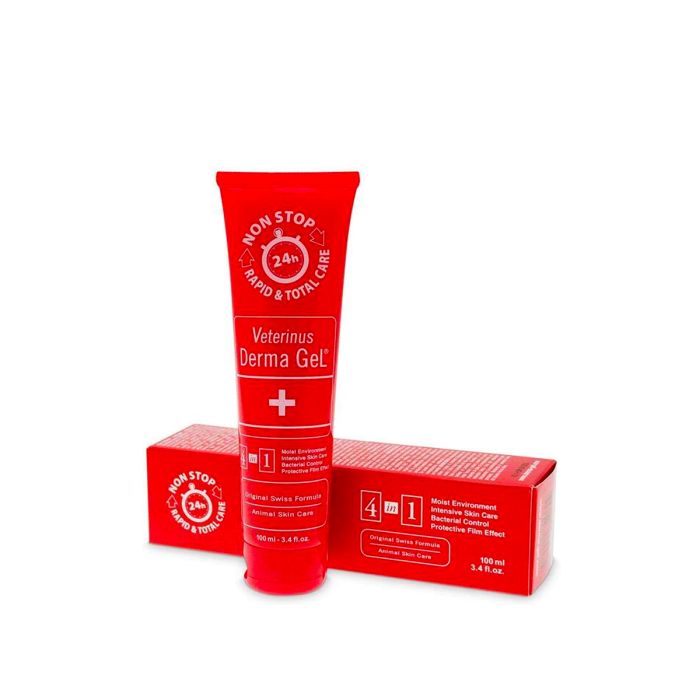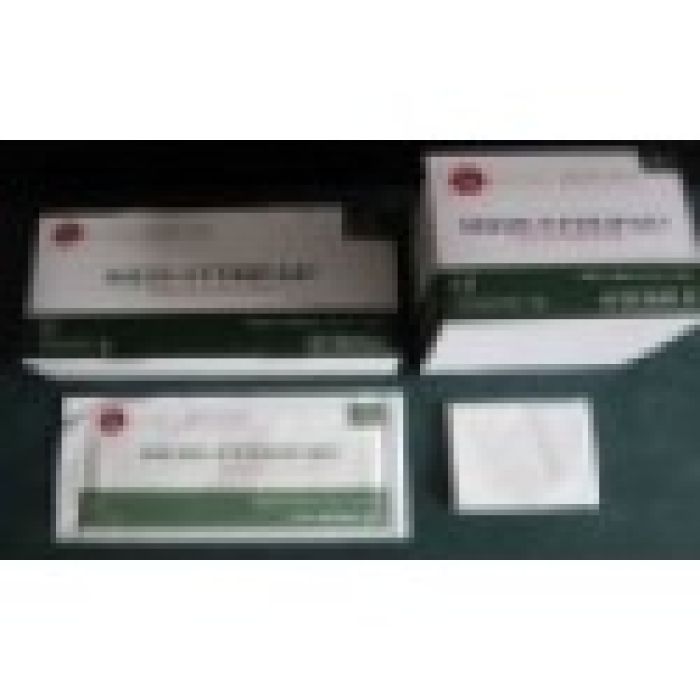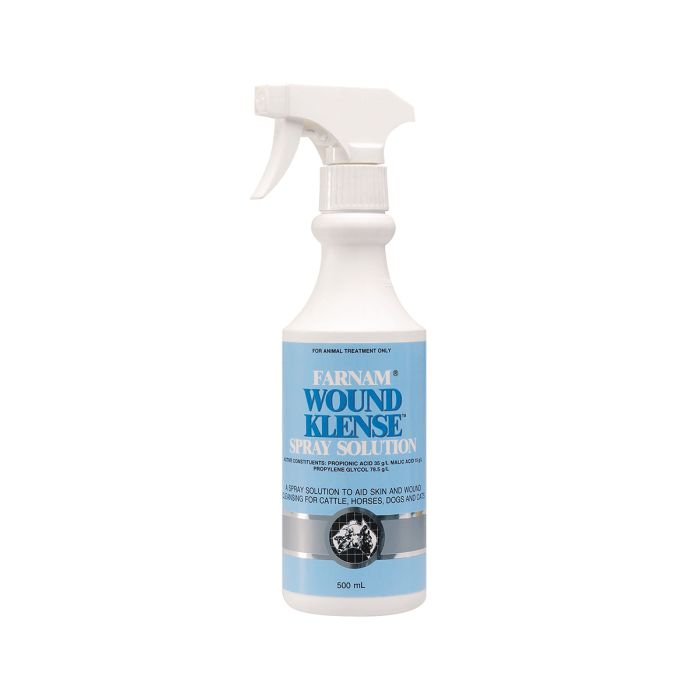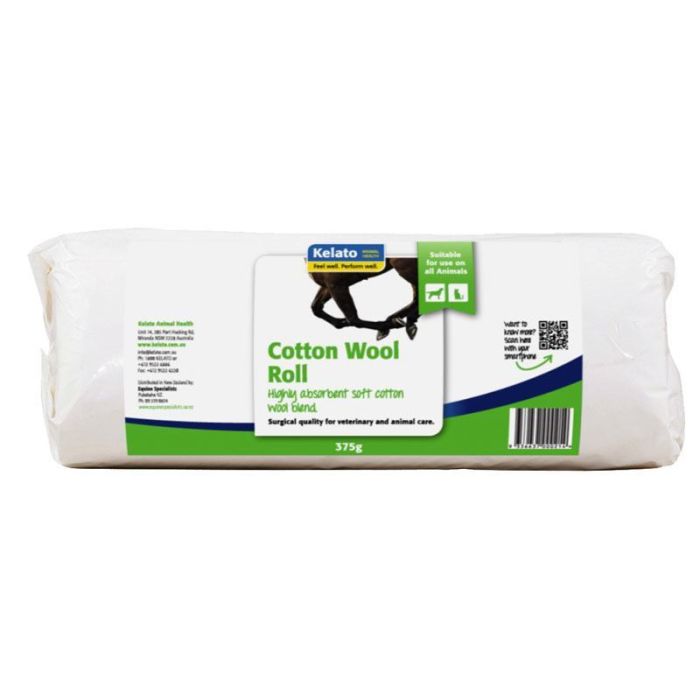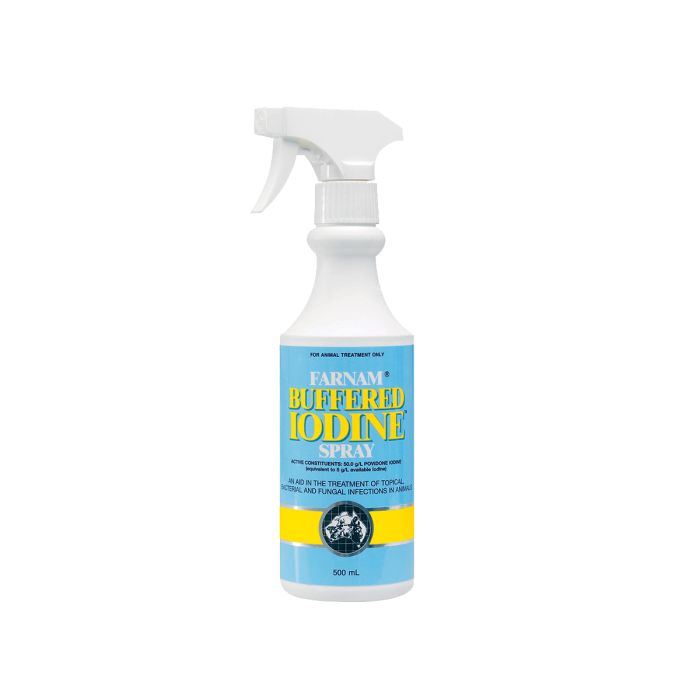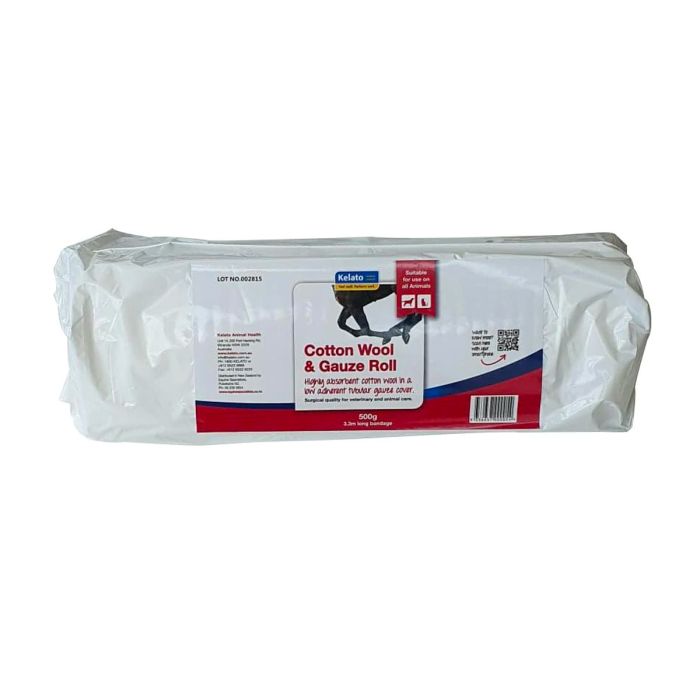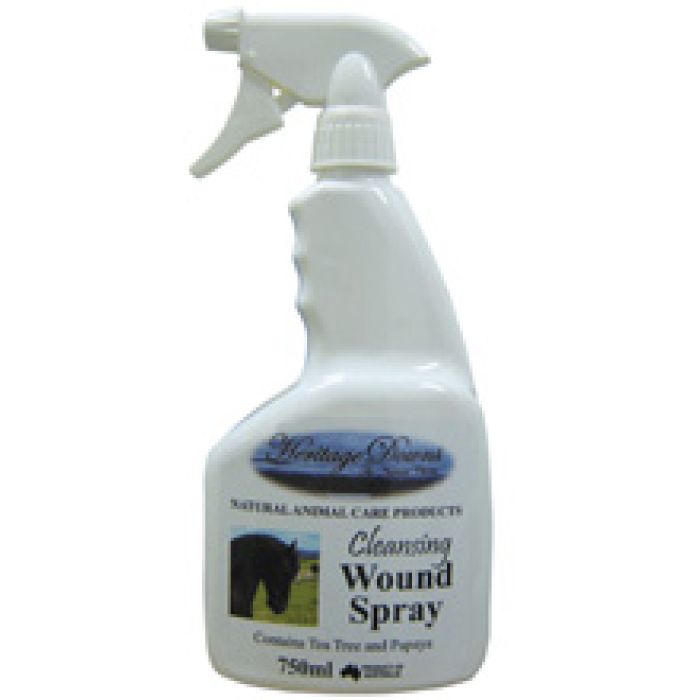Derma Gel
SSD-SSDG-G
Derma Gel for the treatment of wounds.
Derma Gel
Veterinus
Derma GeL® The Ideal Dressing:
- Maintains a moist wound environment to prevent scab formation.
- Allows epithelial cells to migrate across the wound, multiply and enhance healing.
- Encourages wounds to heal from the sides as well as the bottom.
- Allows for production of new epithelial cells that minimises scarring and coloration changes.
- Does not harm the wound.
- Does not contain any mutagenic agents.
- Provides thermal insulation and a bacterial barrier.
- Decreases pain and helps to decrease inflammation.
- Speeds up the healing process.
WHERE TO USE
Dogs and Cats
Derma GeL® provides excellent support following trauma or surgeries, where a primary wound closure is not possible.
Examples include: Large mass removal, traumatic wounds, burns, and open abscesses.
Horses
Derma GeL® is an excellent dressing, especially where bandaging is not possible due to the location of the wound.
Examples include: Wire fence injuries, bites received on the neck or withers, or skin lost following a fall.
HOW TO USE
The spray is useful for:
- Fractious Animals.
- Animal owners who may be anxious about
applying the gel. - Wounds that are in a location of high mobility,
such as, a joint.
The gel is useful for:
Large areas (either under a bandage or open).
THE HEALING PROCESS
Derma GeL® provides a moist environment which maintains epithelial cell viability to 97%and enables healing epithelial cells to migrate across the wound bed, multiply and enhance wound healing. The moist environment provided by Derma GeL® does not permit the formation of a scab. These properties promote wound healing from the sides as well as the bottom of the wound.
A wound without moisture will form a scab. In order to heal, the epithelial cells have to migrate below the scab to reach moisture that enables them to heal the wound. Epithelial cells that have to migrate longer distances do not survive well, and this delays wound healing.
Infection Rate
All wounds are contaminated with microorganisms. The difference between a contaminated wound and an infected wound is the concentration of microorganisms present in the wound. Proper cleansing and care of the wound will prevent the number of microorganisms from increasing to the point of infection. It is recommended that the wound be flushed generously with saline solution or warm water. (The use of topical antibiotics is not recommended with Derma GeL®.) The protective layer that Derma GeL® provides enables the wound to heal without bandaging while controlling the concentration of microorganisms.
No Bandaging Required
The conventional method of wound treatment involved applying gauze and wraps which were thought to protect the wound and speed up healing. Wounds covered with a hydrogel dressing are kept moist without the need for bandaging. Therefore, the skin heals faster, without the trauma of bandage removal and replacement.
When Derma GeL® is applied, it provides an external layer of protective film. This external layer is semi-occlusive and enables the inner layer to maintain a moist environment. The moist environment is composed of hydrophilic particles and several active molecules, which absorb exudates from the wound. The combination of the protective film and the ability to absorb wound exudate creates an optimal moist environment for rapid healing.
No Excessive Proudflesh or Hair Discoloration
The use of Derma GeL® with proper wound cleansing minimises microbacterial concerns that the microorganism population will not increase to infection levels, and that exudates are absorbed from the wound, providing a moist environment in which the healing epithelial cells can work to heal the wound. When keeping the wound cleansed and moist, the epithelial cells produced are identical to those prior to the damage. Derma GeL® does not contain any mutagenic agents, which promote the formation of excessive proud flesh and discoloured hair.

